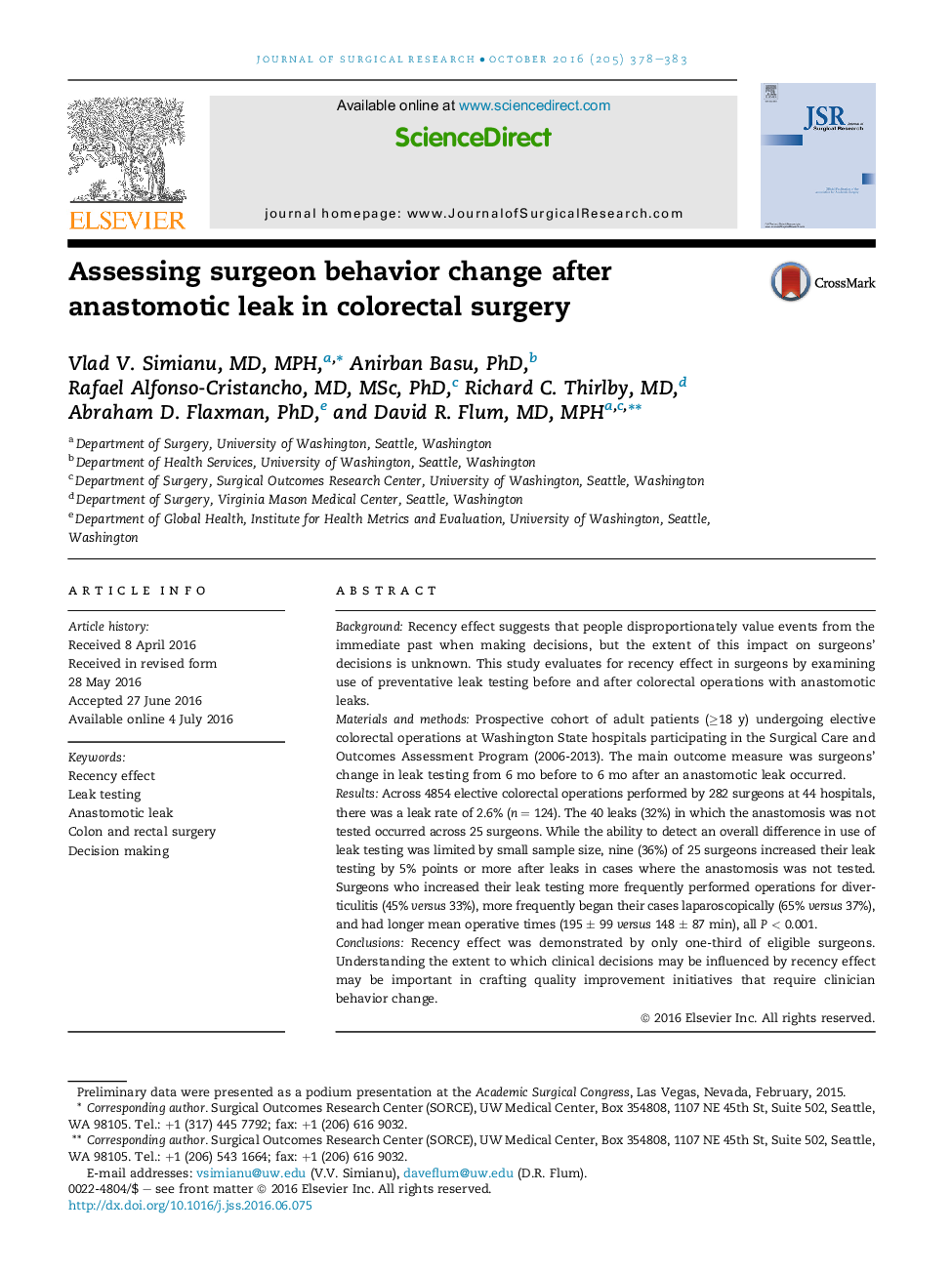| Article ID | Journal | Published Year | Pages | File Type |
|---|---|---|---|---|
| 4299038 | Journal of Surgical Research | 2016 | 6 Pages |
BackgroundRecency effect suggests that people disproportionately value events from the immediate past when making decisions, but the extent of this impact on surgeons' decisions is unknown. This study evaluates for recency effect in surgeons by examining use of preventative leak testing before and after colorectal operations with anastomotic leaks.Materials and methodsProspective cohort of adult patients (≥18 y) undergoing elective colorectal operations at Washington State hospitals participating in the Surgical Care and Outcomes Assessment Program (2006-2013). The main outcome measure was surgeons' change in leak testing from 6 mo before to 6 mo after an anastomotic leak occurred.ResultsAcross 4854 elective colorectal operations performed by 282 surgeons at 44 hospitals, there was a leak rate of 2.6% (n = 124). The 40 leaks (32%) in which the anastomosis was not tested occurred across 25 surgeons. While the ability to detect an overall difference in use of leak testing was limited by small sample size, nine (36%) of 25 surgeons increased their leak testing by 5% points or more after leaks in cases where the anastomosis was not tested. Surgeons who increased their leak testing more frequently performed operations for diverticulitis (45% versus 33%), more frequently began their cases laparoscopically (65% versus 37%), and had longer mean operative times (195 ± 99 versus 148 ± 87 min), all P < 0.001.ConclusionsRecency effect was demonstrated by only one-third of eligible surgeons. Understanding the extent to which clinical decisions may be influenced by recency effect may be important in crafting quality improvement initiatives that require clinician behavior change.
